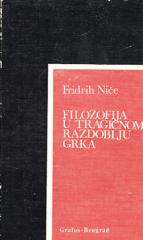
O tiraniji / Hijeront ili o tiraninu
Knjiga filozofa Lea Štrausa predstavlja duboku analizu Ksenofontovog dijaloga Hijeron, ili o tiraninu, u kojoj se vodi razgovor između tiranina Hijerona i pesnika Simonida o prednostima i nedostacima tiranske vlasti.
Štraus koristi Ksenofontov klasični tekst da istraži prirodu tiranije, njen odnos prema zakonu i moralu i ulogu filozofije u političkom životu. Štraus tvrdi da tiranija nije samo bezakoni politički poredak, već i država u kojoj vladar koristi vlast za ličnu korist, ne obazirući se na opšte dobro. Kroz analizu dijaloga, autor pokazuje kako tiranin, uprkos svojoj moći, živi u strahu i nesigurnosti, lišen istinske sreće. Nasuprot tome, filozof, iako bez političke moći, poseduje unutrašnju slobodu i mudrost.
Posebnu vrednost knjizi daje prilog u kome se nalazi esej francuskog filozofa Aleksandra Kojeva o tiraniji i mudrosti, kao i njihova prepiska, gde se govori o mogućnosti mudre tiranije i ulozi filozofa u političkom savetovanju. Ova razmena mišljenja otkriva duboke razlike u razumevanju odnosa između filozofije i politike.
Štrausovo delo podstiče čitaoca na razmišljanje o granicama političke moći, važnosti prava i morala i ulozi filozofije u oblikovanju pravednog društva. O tiraniji ostaje relevantno delo za razumevanje političke teorije i etike vlasti.
Two copies are available
